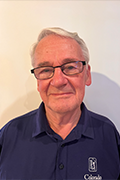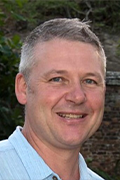Over the past 12 months, 2019 proved to be a year marked by innovations aimed at a fostering circular supply chains and collaboration meant to bring greater attributes to materials, as fabric and fiber firms sought new ways to present their materials, and executives expect more of the same in 2020.
Companies worked together to create new materials to give apparel manufacturers fabrics with better performance attributes through new blends and smarter production methods. They also got more creative in using more sustainable materials to advance their goals and offer the ecologically friendly choices that the consuming public and industry demand.
Innovation
Much of the activity in materials development was aimed at performance fabrics for the activewear field. Burlington Fabrics upgraded its Smarterwear fabrics, designed for easy-care performance polyesters and for versatility, Andrew S. Hicks, account manager for performance fabrics, said. They are also quick-drying and wrinkle resistant.
Burlington’s MCS Hybrid Cool uses two cooling mechanisms–one provides instant cooling before the first sign of sweat on the fabric and a second gives long-lasting cooling by moving moisture vapor away from the skin.
Swiss textile manufacturer Schoeller’s Aerobrane electrostatic-spun membrane technology was introduced to consumers with brand partner Outlier’s Experiment 200’s “Ecstasy in the Rain” jacket.
Schoeller’s Aerobrane membrane is designed to offer optimum protection against wind and weather, along with high levels of breathability. The Aerobrane membrane’s structure consists of an ultra-fine, hydrophilic polyurethane fiber composite that differs from other film-based membranes and offers a softer feel and fluid textile characteristics.
Cone Denim expanded its capabilities with the installation of Jeanologia technology, providing more sustainable and eco-responsible denim manufacturing. Cone Denim is currently installing Jeanologia G2 Dynamic Finishing Ranges and the Flexi Lab Laser capabilities in its Mexico and China facilities, as well as the Bluescan device for laser blanket analysis. Denim fabrics produced with these newest technologies are expected to be available in the mill’s Spring 2020 collection.
PrimaLoft Inc. introduced a proprietary manufacturing technique called PrimaLoft P.U.R.E. that significantly reduces carbon emissions. P.U.R.E.–Produced Using Reduced Emissions–is the latest development in the company’s “Relentlessly Responsible” commitment to make more sustainable products without compromising its reputation for cutting-edge performance technologies and products.
Collaboration
Outerwear fabric innovator David Parkes, founder of Concept III, partnered with Lenzing Fibers to create an assortment of specialty fabrics that showcase the inherent performance, superior hand and sustainability of Tencel Lyocell. The Tree Climate Collection which relies on the heritage of the outdoor industry for inspiration, features flannel and chamois, as well as retro “reverse weave” sweatshirt fabric.
“The collection combines the success of iconic outdoor textiles with the introduction of the many qualities of Tencel Lyocell–hand, moisture management, enhanced dyeability, outstanding drape–and a more sustainable apparel option,” Parkes said.
The Tree Climate collection consists of styles with Tencel x Refibra fibers that are made using one approximately one-third of pulp from cotton scraps taken from garment production and mixed with the Tencel Lyocell wood pulp.
Lenzing took on another collaboration with DuPont Biomaterials to launch a fabric collection made mainly of fibers derived from natural materials. The collection blends DuPont Sorona fibers with Lenzing’s Tencel Lyocell and Modal fibers to give soft garments greater resilience in stretch, recovery and dimensional stability. The certified-mill collection expands the use of sustainable textiles into markets such as activewear, ready-to-wear, intimate apparel and denim.
DuPont’s Sorona brand is made from 37 percent renewable plant-based ingredients, while Tencel is derived from sustainably sourced natural raw material wood.
Positioning itself as offering “Advanced Fabrics,” Cordura hopes to communicate a commitment to continued innovation in fabric technology and its role in enabling the high-performance products consumers demand.
The Cordura Advanced Fabrics platform provides solutions across a comprehensive range, from lightweight, comfort fabrics for casual apparel and activewear, to fabrics that stand up to the toughest environments.
“Our expanded brand positioning platform and new master brand campaign encompasses our passion and commitment to provide users with long-lasting fabric solutions,” Cindy McNaull, Cordura’s business development director, said. “These will be powerful tools to help communicate the breadth and depth of our innovative Cordura fabric portfolio. We’re excited to work alongside our strategic brand, retailer and mill partners to elevate and amplify this story to a global consumer audience.”
European energy company Fortum and sustainable fiber firm Spinnova have introduced the first prototype clothing made from wheat straw.
The joint development of the sustainable fiber has a low environmental impact based on its raw material extraction, processing and manufacture. The prototype group includes a knitted T-shirt, as well as a jacket and skirt made of a woven fabric on organic cotton warp.
Recycling and circularity
Companies are doing more with recycled materials in yarns and fabrics, while the many finishes for attributes like water repellency and durability are taking environmental factors into account, too. Executives said companies are turning to their suppliers to help them meet sustainability goals with the materials they use.
Unifi Inc. introduced three product offerings focused on what it has seen as increased consumer demand for recycled products–TruFlexx sustainable, engineered stretch fiber made with Repreve; TruClean chemical-free anti-static fiber; and Repreve nylon staple fiber.
“We believe that true innovation starts in the fiber and our goal is to provide even more options to inspire our customers to innovate at the fiber level to achieve sustainable, high-performing products,” said Richard Gerstein, Unifi’s executive vice president of global branded premium value-added products and chief marketing and innovation officer. “True innovation happens when we collaborate with our brand and textile partners to create unique performance technologies that are embedded in the fiber.”
Sherry Wood, director of merchandising for Texollini, said, “Our biggest growth the last couple of years has been in our recycled textiles, and leading into our sustainability marketing story as a company.”
Texollini is using Repreve recycled polyester and nylon extensively, as well as blends of recycled polyester and Tencel.
“Now we’re looking into our next generation of sustainable fabrics,” Wood said. “We’re looking into biodegradability fabrics and incorporating new ocean waste yarns. There are a few companies doing different variations, so we’ve been doing research to find the right one for us.”
Lenzing’s Refibra technology reached a new milestone with the first successful production of Tencel Lyocell fibers using post-consumer cotton waste as part of the recycled raw material portion of the fiber’s content.
Refribra technology had been upcycling of a substantial proportion of pre-consumer cotton scraps from garment production and mixing it with virgin wood pulp to produce Tencel Lyocell fibers. In September, Lenzing announced the first phase of the Refibra technology upgrade, increasing the composition of pulp made from upcycled cotton scraps collected from garment manufacturing process to 30 percent.
Swedish wood pulp manufacturer Södra has created a solution where large volumes of used cotton and blended fabrics can be recycled into new clothing and textiles.
Södra has developed a new technique that can separate cotton from polyester, with the pure cotton fibers then added to the company’s wood-derived textile pulp and used to make new textiles.
Schoeller also is introducing ProEearth, a collection of biodegradable polyester fabrics, in 2019. ProEarth launched with five fabrics designed for lifestyle, fashion and outdoor categories. Made with virgin polyester that has been optimized for biodegradation and tested to biodegrade at faster and better rates than competitive offerings, the first styles available this fall include a jacket, pants and linings with various color options.
The company’ sCoolmax business is converting by 2021 all the product line to EcoMade, made with 97 percent recycled PET, Jean Hegedus, sustainability director at Lycra, said in November.
“The standard Coolmax is made from virgin polyester. In order to accommodate that change, we’ve been able to negotiate some good prices on the PET,” Hegedus said. “So what will actually drive the conversion is taking the price down a little bit so it’s more similar to the virgin price.”
The company’s Thermolite fiber, an insulation that delivers lightweight warmth, is also being converted similarly to EcoMade recycled content, Hegedus added.
Originally published in Sourcing Journal











